

Order a call
 15.06.2018
15.06.2018
ASTANA. KAZINFORM - Since the beginning of this year, the Astana branch of the National Center of Expertise under the Ministry of Health of the Republic of Kazakhstan has conducted more than 1,400 tests for meningococcal infection. A Kazinform correspondent visited the National Reference Laboratory for Meningococcal Infection and found out how the diagnosis is confirmed in patients.
“1,400 studies include contact persons and persons examined for preventive purposes. Among those examined for preventive purposes, two cases of carriage of meningococcus were found,” emphasized the head of the capital’s branch, Altai Amanbaev.
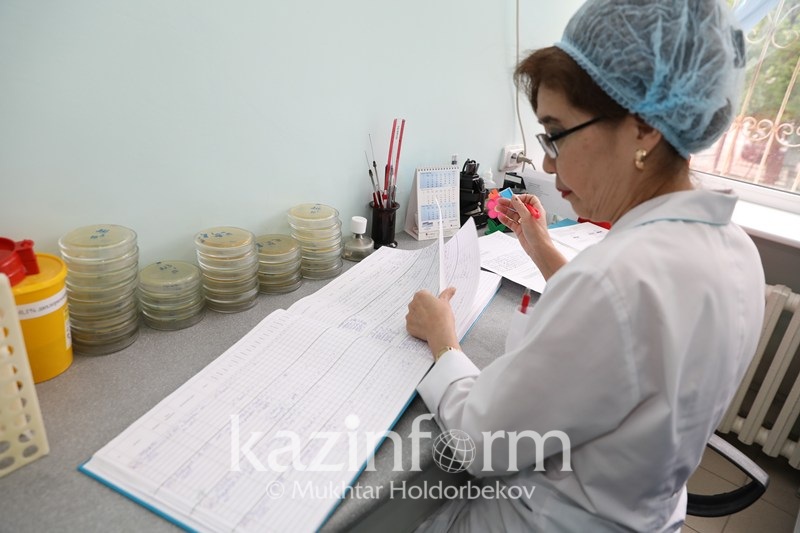
Since the beginning of the year, 42 materials have been received from all regions of Kazakhstan, of which 23 menigococcal cultures and 19 samples of cerebrospinal fluids to study the biological properties of microorganisms by sequencing (recognition of the sequence of gene sections). All analyzes are carried out in the bacteriological laboratory in the airborne research department. droplet infections.
“Here is a room for research into airborne infections to work with meningitis. All samples are received here and processed here. At the moment, doctors are working with 6 materials received from the branches of NCE Almaty and the Almaty region to identify microorganisms,” Tatyana Dolgova, acting head of the laboratory, told a Kazinform correspondent.
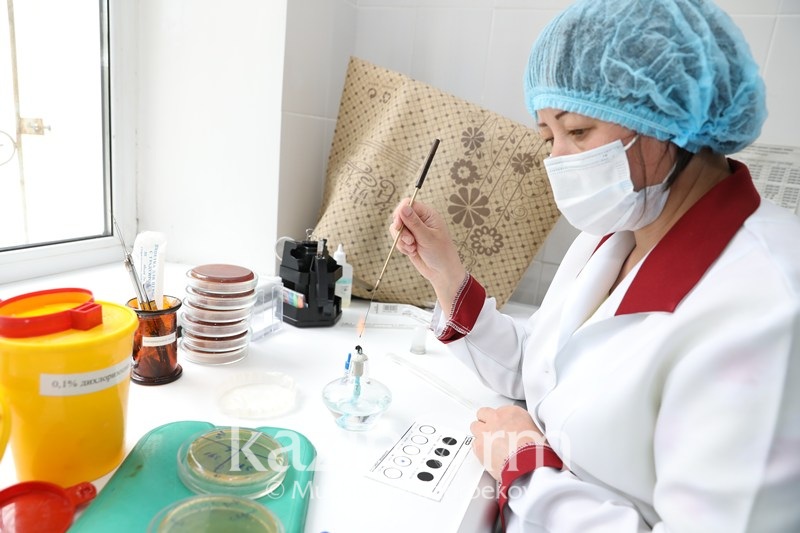
She said that the research is carried out within 4-5 days. On the first day, material is selected and inoculated on nutrient media. In microbiological practice, inoculation is the introduction of any test material into a sterile nutrient medium to detect microorganisms in it. On the second day, a pure culture is isolated (a culture that contains microorganisms of the same type). On the third day, colony microscopy and biochemical tests are performed.
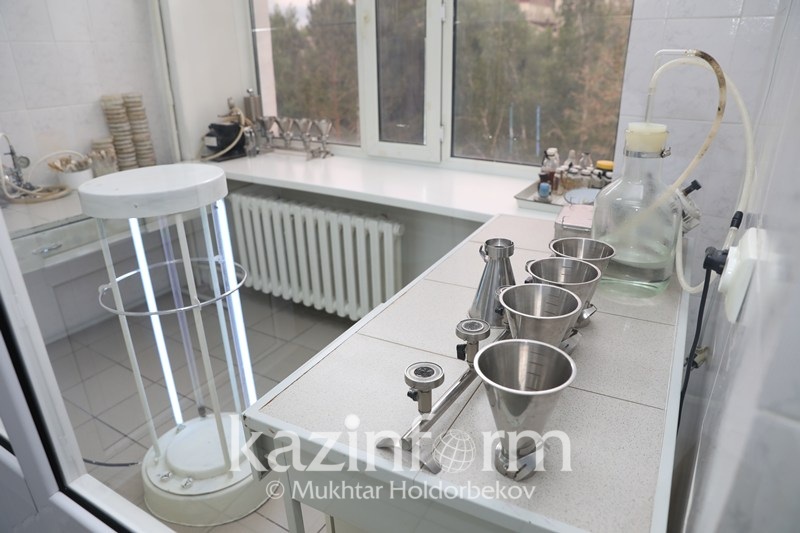
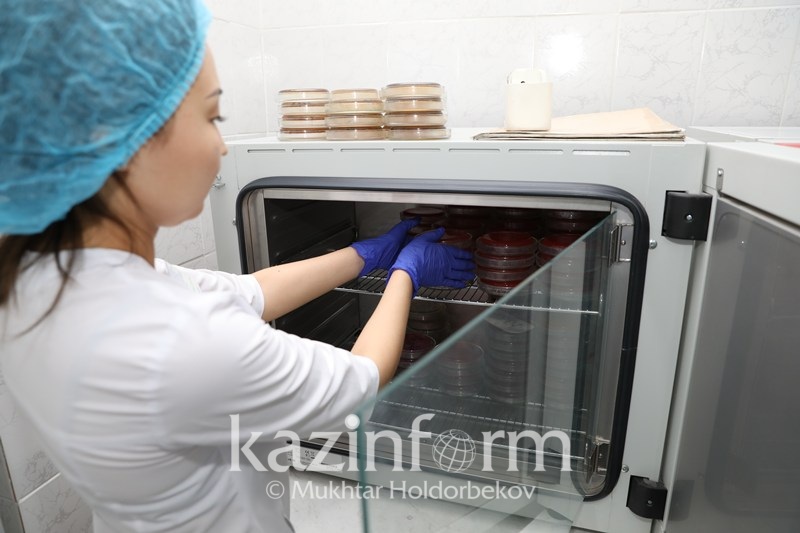
The fourth day is monitoring the results of biochemical tests, microscopy, latex agglutination test (express method), serotyping (virus identification), polymerase chain reaction (a high-precision method of molecular genetic diagnostics, allows you to identify various infectious and hereditary diseases in humans, such as in the acute and chronic stages, and long before the disease can manifest itself). The National Reference Laboratory for Meningococcal Infection continues to study the biological properties of meningococcal pathogens by sequencing microorganisms.
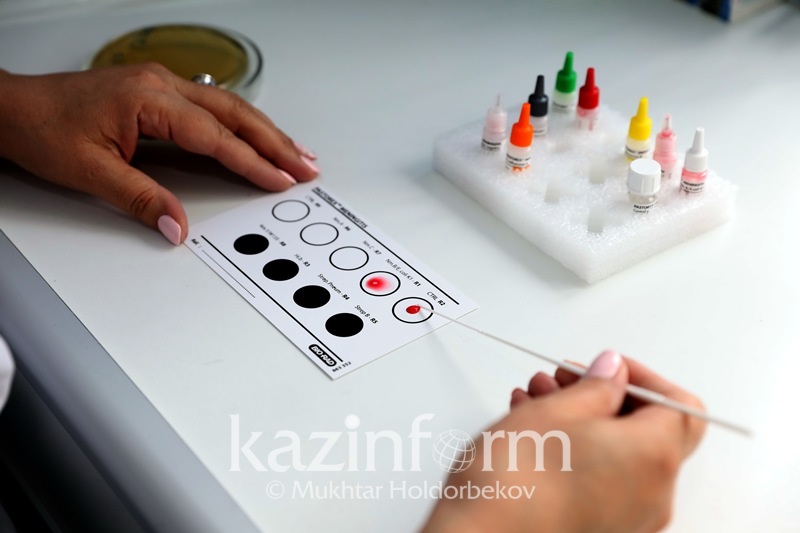
Let us recall that the National Reference Laboratory for Meningococcal Infection was created in September 2015 at the branch of the National Center of Expertise of the Public Health Committee of the Ministry of Health of the Republic of Kazakhstan. Its goal is effective epidemiological and laboratory surveillance of the circulation of the causative agent of meningococcal infection at the national level.
According to the Ministry of Health as of June 13, 59 cases of meningococcal infection have been registered in Kazakhstan since the beginning of 2018, including 21 cases among children under 14 years of age. Of these, 12 cases were fatal: Almaty - 6 cases, Almaty region - 3, South Kazakhstan region - 2, Kyzylorda region - 1.
The Ministry of Health has published recommendations for the prevention of meningococcal infection. So, when the first symptoms of a disease with catarrhal symptoms appear (redness of the throat, fever, headache, weakness), you must consult a doctor and follow all his recommendations:
It is necessary to limit participation in various cultural events, visiting swimming pools, playgrounds in shopping and entertainment centers, and maintain personal hygiene.
Ventilate the room frequently and carry out wet cleaning daily in organized teams.
It is important to carry out sanitation of lesions with chronic infection; in childhood this often concerns the ENT organs, therefore visits to a pediatric otolaryngologist should be regular and, if possible, preventative.
It is necessary to drink only boiled or bottled water.
Avoid hypothermia, fasting, lack of sleep, stress, and so on. It must be remembered that a disease is always easier to prevent than to treat.
https://www.inform.kz/ru/kak-provodyat-ekspertizu-po-meningitu-v-kazahstane_a3288399